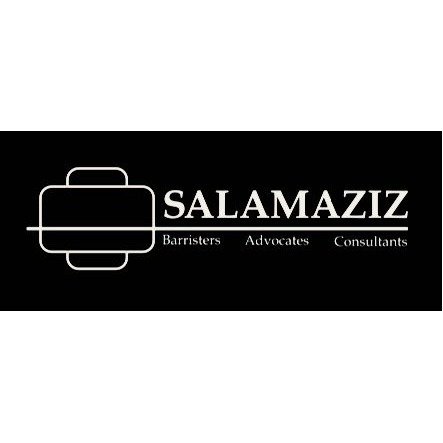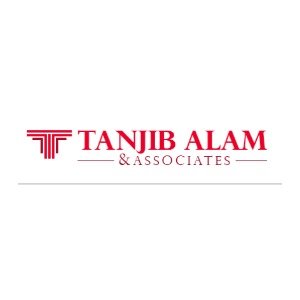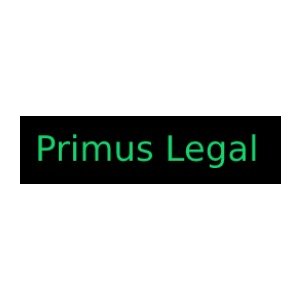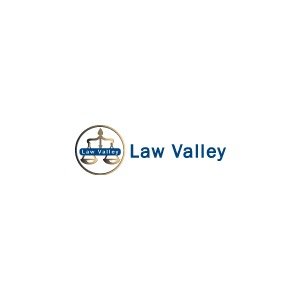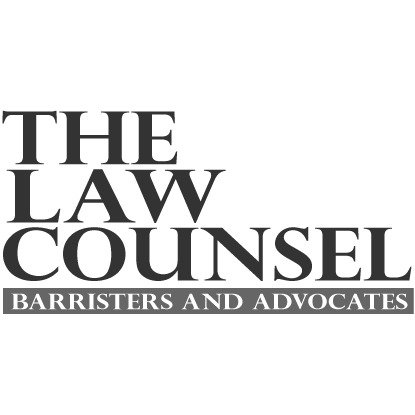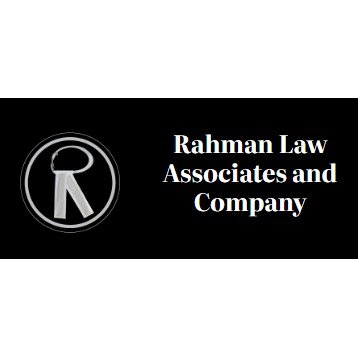Best Energy Regulatory Law Lawyers in Bangladesh
Share your needs with us, get contacted by law firms.
Free. Takes 2 min.
Or refine your search by selecting a city:
List of the best lawyers in Bangladesh
About Energy Regulatory Law in Bangladesh
Energy Regulatory Law in Bangladesh refers to the set of legal rules, policies, and regulations that govern the production, transmission, distribution, and consumption of energy. This includes electricity, natural gas, petroleum, and other energy resources. The primary objective of Energy Regulatory Law is to ensure that energy resources are used efficiently, fairly, and in a way that promotes national development. The Bangladesh Energy Regulatory Commission Act 2003 created the Bangladesh Energy Regulatory Commission (BERC), which holds the main responsibility for overseeing the energy sector, setting tariffs, regulating licenses, and addressing disputes among producers, distributors, consumers, and other stakeholders.
Why You May Need a Lawyer
There are several situations where individuals, businesses, or organizations dealing with energy-related activities in Bangladesh may require legal help in the field of Energy Regulatory Law. These situations include:
- Obtaining energy licenses for production, transmission, distribution, or trading.
- Challenging or complying with tariff rates and changes set by regulatory authorities.
- Navigating disputes with regulatory bodies, suppliers, or consumers.
- Understanding and complying with environmental and safety standards mandated by law.
- Negotiating and drafting energy-related contracts and agreements with local or international partners.
- Responding to compliance notices, penalties, or other enforcement actions from regulators.
- Participating in tenders and investment opportunities in Bangladesh's energy sector.
- Addressing issues related to land acquisition, permits, and project approvals for energy infrastructure.
Legal professionals specializing in Energy Regulatory Law can provide valuable guidance, help you avoid costly mistakes, and protect your interests if disputes arise.
Local Laws Overview
Energy Regulatory Law in Bangladesh is governed by several important laws, rules, and policies. Key aspects include:
- Bangladesh Energy Regulatory Commission Act 2003 - Establishes the regulatory authority (BERC), outlines its powers and functions, and sets the foundation for the regulation of electricity, gas, and petroleum.
- Electricity Act 2018 - Covers licensing, tariffs, safety standards, and penalties for electricity-related activities.
- Gas Act 2010 - Deals specifically with the distribution, transmission, and use of natural gas.
- Renewable Energy Policy 2008 - Provides guidance for the development and use of renewable energy sources such as solar, wind, and biomass.
- Rules and Tariff Orders - BERC regularly issues rules, regulations, and tariff orders affecting energy pricing, supply, and consumer protection.
- Environmental Laws - Energy operators must also comply with environmental protection laws and obtain necessary environmental clearances.
Compliance with these laws is mandatory for anyone involved in producing, distributing, or consuming substantial amounts of energy in Bangladesh. BERC has the power to enforce regulations, mediate disputes, and impose penalties for violations.
Frequently Asked Questions
What is the role of the Bangladesh Energy Regulatory Commission?
The Bangladesh Energy Regulatory Commission (BERC) regulates the country's energy sector. Its responsibilities include setting tariffs, issuing licenses, resolving disputes, and ensuring compliance with relevant laws to protect both consumers and providers.
Do I need a license to generate or sell electricity in Bangladesh?
Yes, any entity intending to generate, transmit, or distribute electricity must obtain the necessary license from BERC before commencing operations, except in specific circumstances prescribed by law.
How are energy tariffs determined?
Tariffs for electricity, gas, and other energy sources are determined by BERC based on various factors including investment costs, operational costs, government policy, and public interest. Stakeholders can participate in public hearings during tariff-setting processes.
Can foreign companies invest in Bangladesh's energy sector?
Yes, foreign investment is allowed in the energy sector. However, investors must comply with local regulations, secure necessary approvals, and adhere to sector-specific laws and policies.
What happens if an energy company violates safety regulations?
Companies that violate safety regulations can face penalties, suspension or cancellation of licenses, and other enforcement actions as determined by BERC and relevant government agencies.
How are consumer complaints resolved in the energy sector?
Consumers can file complaints with their energy provider, and if not resolved, may escalate the complaint to BERC for mediation and resolution as per the established dispute resolution mechanisms.
What legal recourse do I have if I disagree with a tariff order?
If you are affected by a tariff order and believe it is unjust or unlawful, you can contest it through the appeals process provided by BERC or seek judicial redress by challenging the order in court.
Are there incentives for renewable energy projects?
Yes, the government offers several incentives and support mechanisms for renewable energy projects, including tax benefits, easier licensing, and policy support under the Renewable Energy Policy 2008.
Do energy laws apply to small-scale producers or only large companies?
Regulations generally apply to all producers, distributors, and consumers above certain thresholds, but some laws specifically target larger operators. Small-scale or domestic producers may have simplified requirements.
What documents should I prepare before applying for an energy project license?
You will typically need a detailed project proposal, feasibility study, environmental clearance, company registration documents, financial statements, and any other information required by BERC or relevant authorities.
Additional Resources
Several resources can assist individuals and businesses involved in the energy sector:
- Bangladesh Energy Regulatory Commission (BERC) - Main regulatory authority for energy sector oversight and licensing.
- Ministry of Power, Energy and Mineral Resources - Government body responsible for policy formulation and sector development.
- Power Division - Handles electricity generation and distribution matters.
- Department of Environment - For environmental clearances and compliance related to energy projects.
- Bangladesh Power Development Board (BPDB) - A key public sector energy utility involved in power generation and transmission.
- Local legal practitioners and law firms specializing in energy and environmental law.
- Industry associations such as Bangladesh Independent Power Producers Association.
Next Steps
If you need legal assistance in Energy Regulatory Law in Bangladesh, consider the following steps:
- Identify the specific issue or requirement you are facing, such as licensing, tariffs, or dispute resolution.
- Gather all relevant documents and information about your case or project.
- Consult with a qualified legal practitioner specializing in energy regulatory law to discuss your options and develop a strategy.
- If needed, approach the relevant regulatory authority, such as BERC, to initiate proceedings or submit applications.
- Follow your lawyer's advice regarding compliance, documentation, and timelines to avoid unnecessary legal risks.
Taking prompt and informed action will help you navigate the complexities of Energy Regulatory Law in Bangladesh more effectively and achieve your goals with confidence.
Lawzana helps you find the best lawyers and law firms in Bangladesh through a curated and pre-screened list of qualified legal professionals. Our platform offers rankings and detailed profiles of attorneys and law firms, allowing you to compare based on practice areas, including Energy Regulatory Law, experience, and client feedback.
Each profile includes a description of the firm's areas of practice, client reviews, team members and partners, year of establishment, spoken languages, office locations, contact information, social media presence, and any published articles or resources. Most firms on our platform speak English and are experienced in both local and international legal matters.
Get a quote from top-rated law firms in Bangladesh — quickly, securely, and without unnecessary hassle.
Disclaimer:
The information provided on this page is for general informational purposes only and does not constitute legal advice. While we strive to ensure the accuracy and relevance of the content, legal information may change over time, and interpretations of the law can vary. You should always consult with a qualified legal professional for advice specific to your situation.
We disclaim all liability for actions taken or not taken based on the content of this page. If you believe any information is incorrect or outdated, please contact us, and we will review and update it where appropriate.
Browse energy regulatory law law firms by city in Bangladesh
Refine your search by selecting a city.





